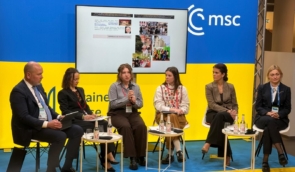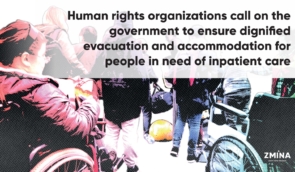ZMINA highlights the need for accountability at Central and Eastern Europe Security Forum in Warsaw
The Central and Eastern Europe Security Forum takes place in the capital of Poland, Warsaw, on June 16-17. It provides a platform for representatives of governments, civil society organisations, academia and the private sector from Europe and the United States to exchange knowledge and experience. The event addresses, among other things, geopolitical and social issues critical to the security of states and citizens, in particular Russia’s war of aggression against Ukraine. ZMINA’s Legal Analyst, Onysiia Syniuk, joined the conference.
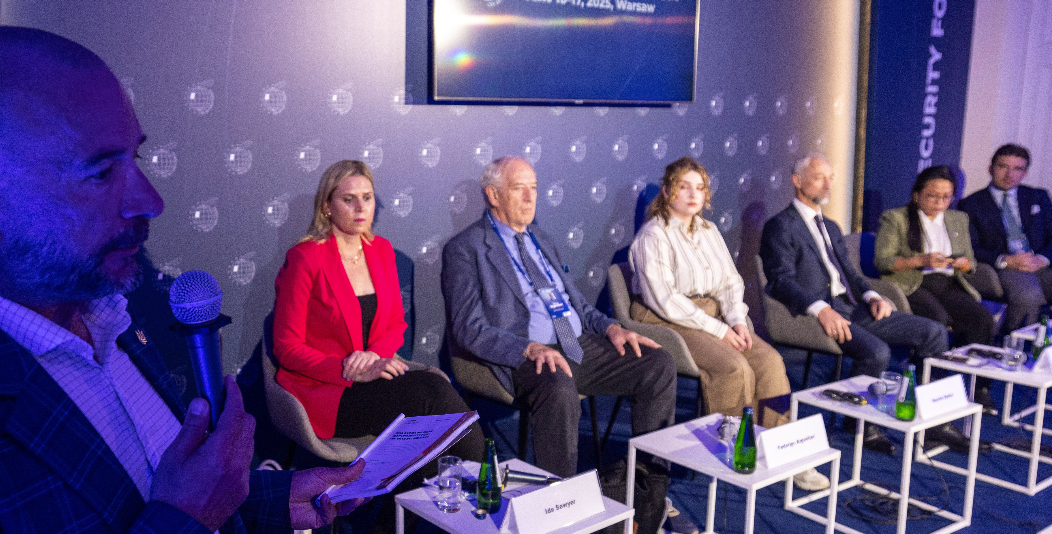 Photo credit: CEE Security Forum
Photo credit: CEE Security ForumDuring the opening, Deputy Prime Minister of Poland, Minister of National Defence, Władysław Kosiniak-Kamysz, emphasised that Poland’s actions are guided by a commitment to peace. However, to maintain it, one must be aware of threats.
“Poland knows how the Russian Federation acts and behaves. The threat has always come from there. Russia poses a threat not only territorially, but also to the existence of peoples. Its name has changed — Empire, Soviet Union, Federation, but the core remains the same,” said Kosiniak-Kamysz.
He noted that it is impossible to talk about Europe’s security without Ukraine: “Now, many say that this is not our war. We’ve grown used to it. Bucha has been forgotten. However, Poland’s help to Ukraine is not only moral, but also very pragmatic. Ukraine’s resistance gives Poland and Europe time to prepare. Every minute matters”.
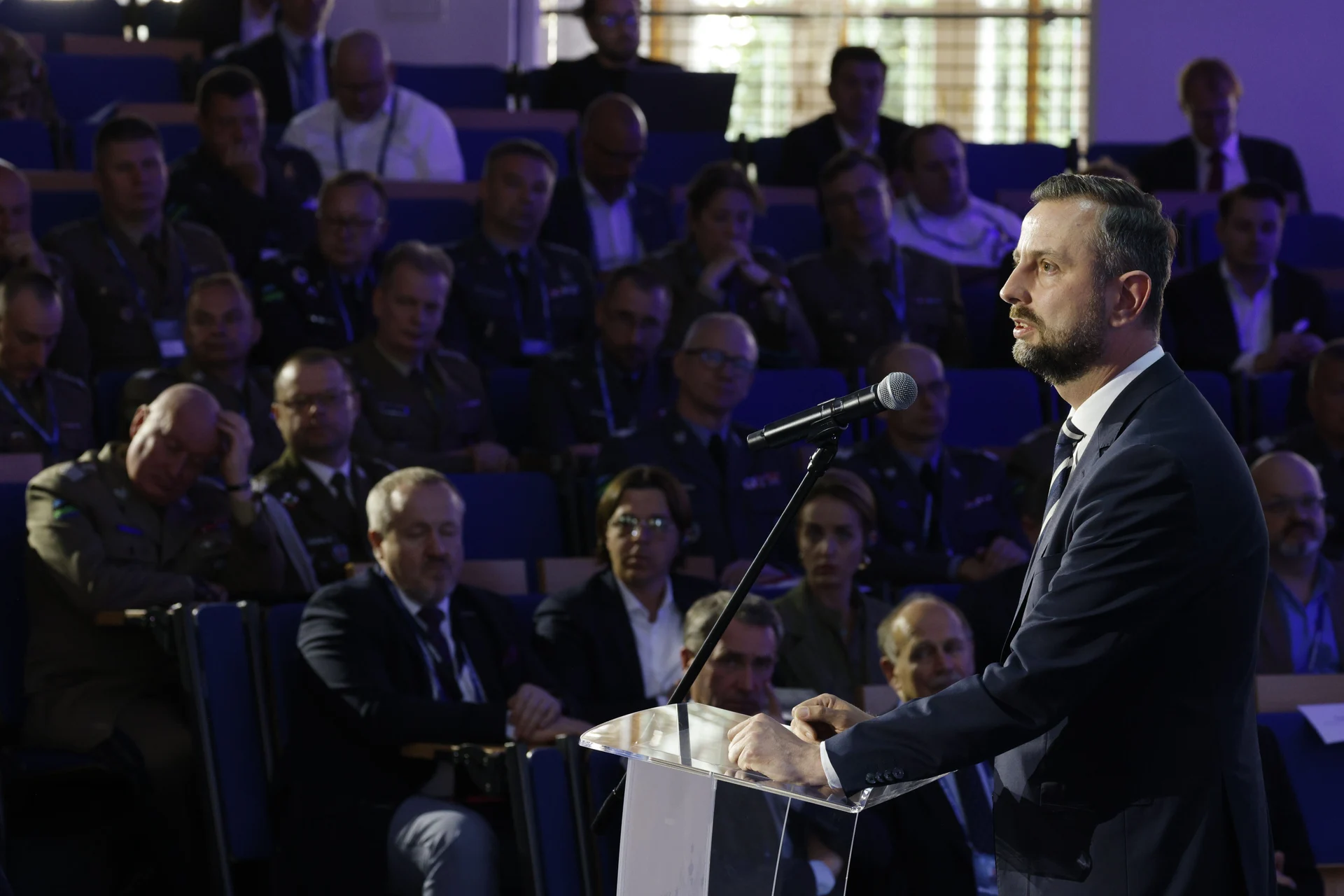 Deputy Prime Minister of Poland, Minister of National Defence, Władysław Kosiniak-Kamysz. Photo credit: CEE Security Forum
Deputy Prime Minister of Poland, Minister of National Defence, Władysław Kosiniak-Kamysz. Photo credit: CEE Security ForumZMINA’s Onysiia Syniuk joined the expert panel on the topic “Will Anyone Be Held Accountable for the War in Ukraine?”. She argued that Russia’s past actions in Chechnya, Georgia, Moldova, and Crimea, which went unpunished, emboldened its full-scale invasion of Ukraine.
“Accountability is an inalienable part of any peace and a prerequisite to security. Impunity is an open door for Russia to continue its illegal actions. It emboldens not only Russia: the fragility of the international rule of law is an opportunity, not a concern, for other regimes,” stated Syniuk.
Ida Sawyer, Director of the Crisis and Conflict Division at Human Rights Watch, agreed that the current situation in Ukraine encourages other authoritarian-leaning actors to engage in illegal actions. She added that the “amnesty for war crimes cannot be a subject of negotiations“.
Syniuk highlighted that accountability is possible only by ensuring an effective ICC and capable domestic law enforcement; establishing the Special Tribunal on the Crime of Aggression; closing gaps in sanctions; providing compensation in the framework of the Register of Damage; and recognising that the Russian aggression started in 2014. “One of the aspects of accountability is non-repetition. In other words, to make sure the Russian aggression does not re-occur, we need a stronger, more effective system of international security,” Syniuk added.
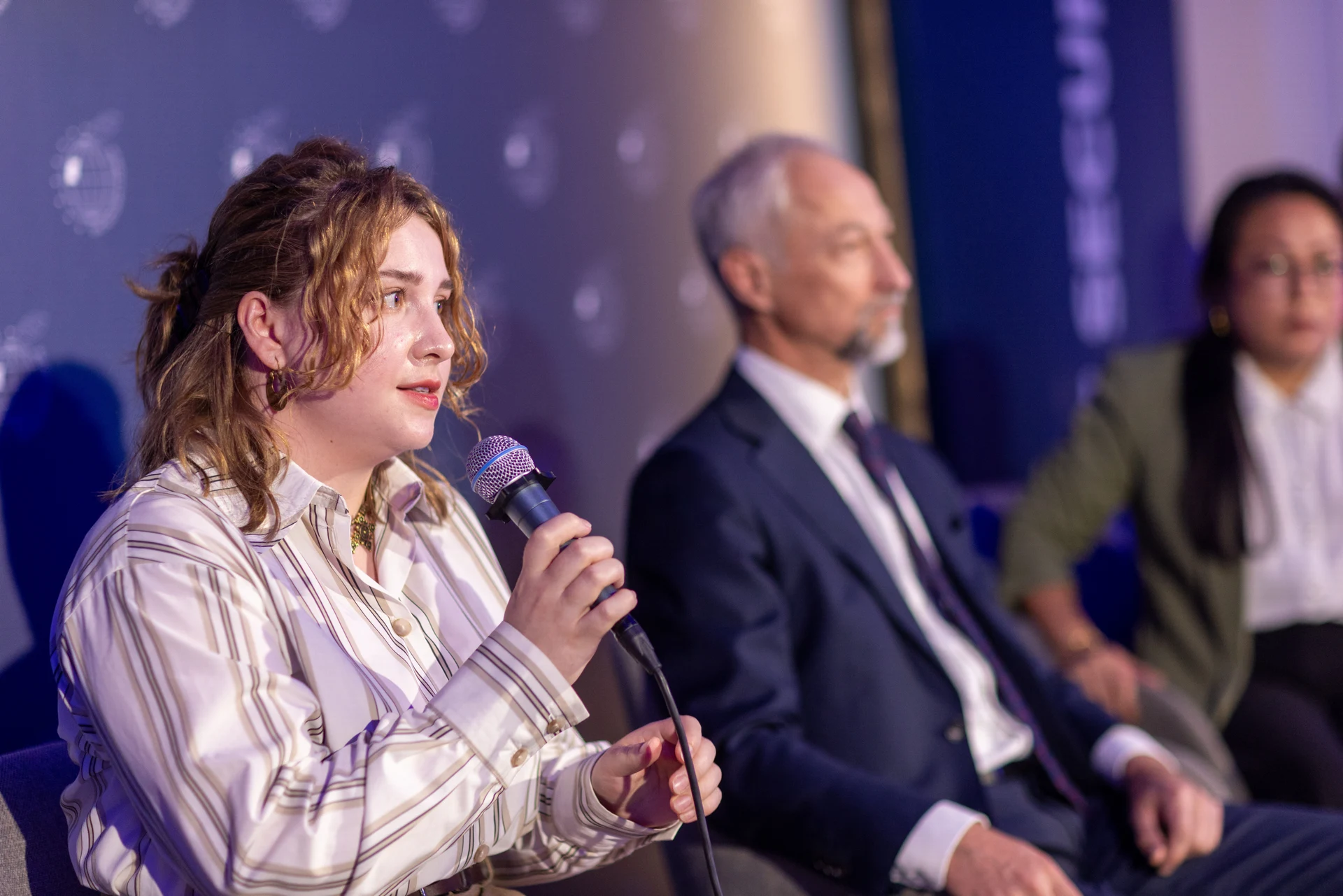 Legal Analyst at the Human Rights Centre ZMINA, Onysiia Syniuk. Photo credit: CEE Security Forum
Legal Analyst at the Human Rights Centre ZMINA, Onysiia Syniuk. Photo credit: CEE Security ForumProfessor and Director of the Guarini Institute at John Cabot University in Italy, Federigo Argentieri, pointed out that Russian propagandists, including those who spread propaganda in European countries calling for crimes and glorifying criminals, must also be held accountable. “Russia distorted the history of the beginning of World War II, erasing its participation in this process, and one of our tasks is to eradicate this false vision of history from the minds of people,” said Argentieri.
Janis Bardans, Chairman of the Board of Iustitia et Securitas from Latvia, recalled that after World War II, some Nazis were held accountable in Nuremberg, while the USSR never faced similar reckoning. He believes the international legal community should take part in preparing a lawsuit, as true justice can only be achieved by holding the guilty accountable.
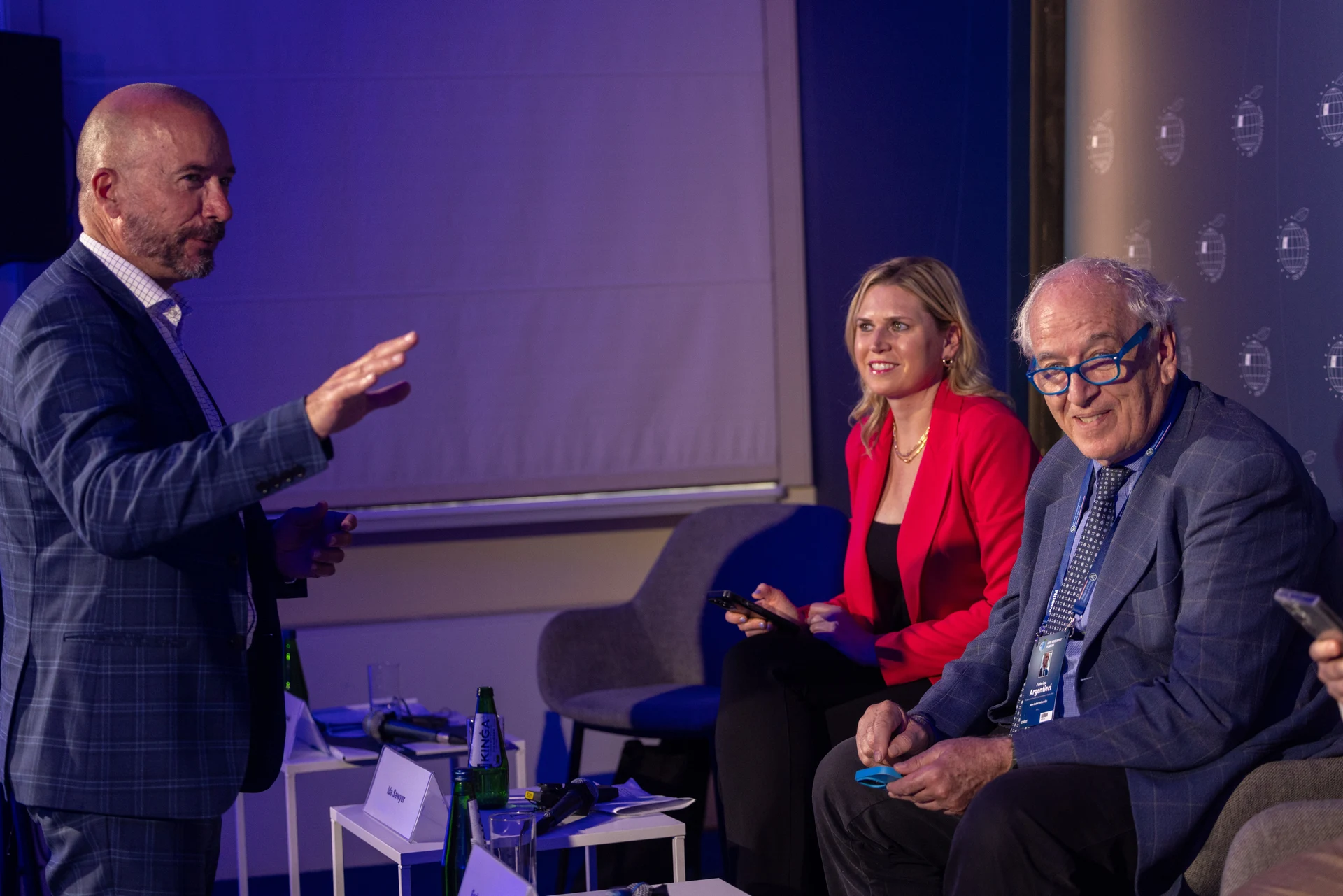 Photo credit: CEE Security Forum
Photo credit: CEE Security ForumFinally, Maksimas Mitla, Country Director of The Reckoning Project: Ukraine Testifies from Lithuania, focused on universal jurisdiction. He shared how his organisation, in 2024, filed a lawsuit in Argentina against an individual accused of committing acts of torture:
“Universal jurisdiction requires political will, but it is also a useful tool. With the current volume of war crimes being registered in Ukraine, the Ukrainian law enforcement system will need help to ensure accountability. Some states have de jure universal jurisdiction that does not work in practice, but some use this tool effectively. (…) Argentina has experience in dealing with such cases. In addition, advocacy through specific cases helps to humanise Ukraine and Ukrainians in the eyes of residents of faraway countries“.
If you have found a spelling error, please, notify us by selecting that text and pressing Ctrl+Enter.


